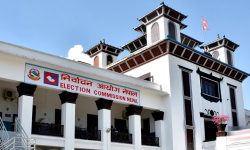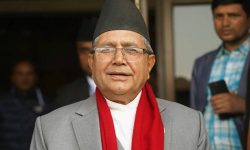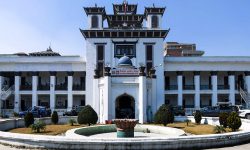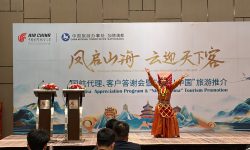‘Redefining Equality & Inclusion : A Call to Action on International Women’s Day 2025’

Gender Equality and Social inclusion are dynamic concepts, constantly evolving to reflect changes in socio-economic and cultural contexts. As we approach International Women’s Day 2025, under the theme ‘For ALL Women and Girls: Rights. Equality. Empowerment,‘ we are reminded of the need for continued action to ensure true gender equality. Although progress has been made, the journey toward complete inclusion and equality remains in progress. It is time to rethink our strategies, challenge outdated norms, and adapt gender equality and inclusion interventions to Nepal’s unique realities.
A Fluid and Contextual Approach to Gender Equality
Gender equality is not a one-size-fits-all concept; it is fluid and deeply intertwined with the socio-economic realities of a given context. True inclusion demands a critical, data-driven approach rather than a blanket strategy that dilutes its essence. Resources are limited, so their best utilization requires precision, need-based scaffolding, and adaptability. Positive discrimination should be seen as a temporary measure: an essential tool to bridge inequalities, not a permanent crutch. It must pave the way for an equitable society, where meritocracy and fairness drive progress.
The goal is to foster dignity, self-reliance, and shared responsibility across all sectors, ensuring that no individual or group remains dependent. Gender equality and social inclusion should not be confined to one specific group but must embrace all individuals: men, women, and LGBTIQ+ persons through an intersectional and balanced lens.
Shifting from Dependency to Contribution
As societal circumstances shift, so too must our definitions and interventions regarding gender equality and social inclusion. Everyone must contribute meaningfully to the nation’s prosperity, not as a recipient of perpetual support but as an equal stakeholder or contributor. It is time to redefine gender equality and social inclusion with realism, focusing on sustainable outcomes that go beyond historical patterns of charity and entitlement.
Inclusion is not a mere end, but a strategic process that seeks to dismantle systemic barriers. However, there is a growing risk that inclusion has become a misguided norm, where the focus has shifted from empowerment to dependency. True inclusion ensures that respect, dignity, and equal participation are universal rights but never come at the cost of quality, accountability, or progress. Moreover, with extra support, an extra duty must come to contribute to nation-building. Nepal’s socio-economic context demands practical, long-term strategies rather than fragmented, short-term thinking on inclusion.
Localizing Inclusion to Nepal’s Identity
Inclusion must be rooted in Nepal’s unique identity and values. Instead of adopting external definitions of equality & inclusion, Nepal can shape its own path to inclusivity, reflecting its own cultural, political, and economic realities. Inclusion must be more than symbolic representation; it should lead to tangible, measurable outcomes across key sectors like politics, education, healthcare, and technology.
By localizing inclusion, Nepal can ensure that it reflects the values of the people and serves the national interest. This means creating opportunities, dignity, and progress that are not just rhetorical but real. It also means addressing historical injustices through meaningful actions rather than perpetuating cycles of dependency.
The Government of Nepal has made strides in gender equality, aligning constitutional rights with international frameworks, such as ensuring 33% female representation in government bodies, expanding access to land, credit, and entrepreneurial support for women, and advancing reproductive health rights. However, the discourse on inclusion must evolve to keep up with current needs and challenges. It is time for a shift from process-heavy & outcome-poor approaches to action-driven results that demonstrate meaningful change.
Breaking Dependency and Fostering Meritocracy
Achieving true gender equality in Nepal is not about creating a perpetual cycle of privilege; it is about fostering an environment where meritocracy, competition, and national pride thrive. Inclusion should be a matter of dignity, not dependency. We must prioritize quality, accountability, and progress in our inclusion efforts and not let outdated ideas about dependency hold us back. By ensuring meritocracy and encouraging equal participation in all sectors: such as sports, education, politics, and technology, Nepal can break the barriers that limit true progress.
The inclusion is not about giving individuals a free pass; it is about ensuring that everyone, regardless of gender, has equal opportunities to contribute and thrive. This means recognizing that gender equality is not a women’s issue alone; it is a societal issue that involves men, women, and LGBTIQ+ individuals. Men must also challenge patriarchal norms and support gender equity initiatives to create a balanced society.
Policies for Sustainable Change
Achieving gender equality requires policies that are contextually grounded and backed by data-driven, transparent, and accountable implementation mechanisms. Nepal must invest in gender-responsive budgeting at local and national levels to ensure that policies reflect the actual needs of marginalized groups, including women, girls, LGBTIQ+ individuals, and persons with disabilities.
Additionally, policies should focus on empowering individuals, providing access to quality education, healthcare, legal protections, and employment opportunities, and creating safe spaces for women and marginalized groups. The government must prioritize the implementation of gender-responsive policies, ensuring that these are grounded in the needs of the people they are designed to serve.
Strengthening Institutions for Gender Equality & Social Inclusion
Nepal must establish gender-transformative organizations that challenge harmful norms, practices, and power dynamics. Gender equality and social inclusion must be embedded in organizational cultures, with dedicated policies and monitoring mechanisms to ensure accountability. Leadership roles should be assigned based on disaggregated data, and institutions should regularly conduct gender audits to assess the effectiveness of their gender equality initiatives.
Moreover, the development of research institutions and universities is critical to driving societal progress. Research should inform action, with policies and interventions tailored to the unique challenges faced by marginalized communities. This includes fostering an environment where gender-responsive research translates into real-world solutions that address gender-based violence, economic empowerment, and equitable opportunities in all sectors.
Ensuring Financial Transparency and Efficiency
Financing for gender equality must be transparent, adequate and efficient. A unified funding mechanism that combines government resources, development partner contributions, and individual investments is essential for ensuring sustainable support for gender equality and inclusion efforts. Nepal must also close any financial loopholes and hold duty-bearers accountable for the proper use of resources.
Moreover, it is important to address legal frameworks that eliminate gender-based discrimination and strengthen support systems for survivors of violence. The government must also facilitate women’s participation in decision-making at all levels of governance, ensuring their voices are heard and valued in the policy-making process.
Moving Beyond Rhetoric to Action
The journey towards gender equality and social inclusion in Nepal is far from complete. While progress has been made, it is time to move beyond rhetoric and take bold & decisive actions. The discourse on gender equality and social inclusion should not be limited to symbolic gestures but should focus on tangible & measurable outcomes that lead to real change.
International Women’s Day 2025 serves as a reminder that gender equality is not a distant goal but a pressing need. Nepal must address the challenges it faces by implementing gender-responsive policies, promoting women’s leadership, and strengthening systems that facilitate women’s participation in all sectors of society. By focusing on actions that are locally grounded and data-driven, Nepal can create an inclusive society that respects its unique identity and values.
Conclusion: Redefining Gender Equality & Social Inclusion
As we mark International Women’s Day 2025, let us commit to redefining social inclusion and gender equality in a way that is rooted in Nepal’s history and values. The success of gender equality & social inclusion initiatives should be measured by the tangible impact they have on the lives of the people they are meant to serve. Inclusion should mean equal participation and contribution across all sectors of society, not just symbolic representation. Nepal’s challenge is not a lack of capability but a sound implementation & context specific decisive action. We must move beyond theories and embrace real change. The work is far from over, but with bold actions and collective responsibility, Nepal can achieve an inclusive society where equality, dignity, equity, and progress are the norm for all. Let us celebrate the achievements made and push for the changes still needed. The time for action is now.
-The views presented here are those of the author and do not reflect any official position.








Comments